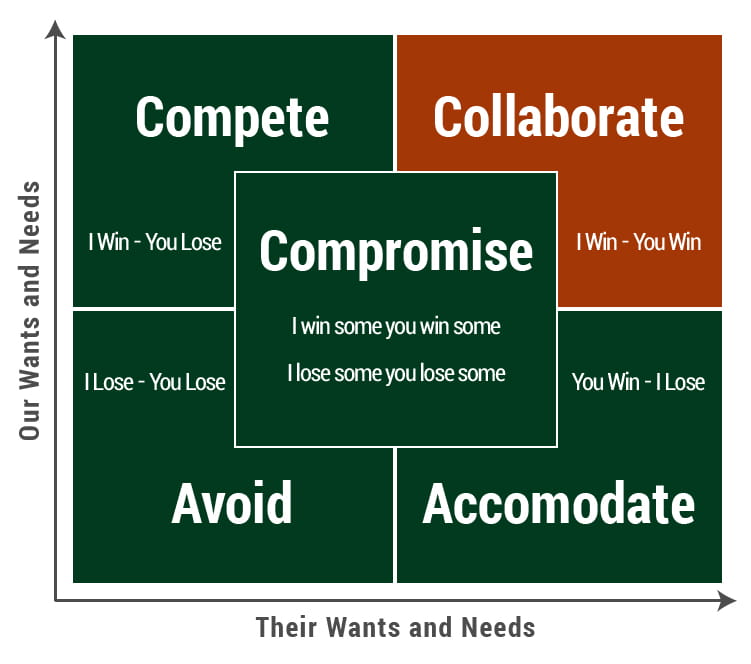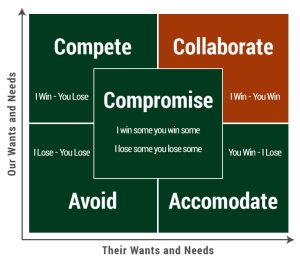
Best Approaches for Conflict Resolution

What is Conflict ?
Conflict is a disagreement between two or more parties aspiring over competitive means or ends.
Conflict is inevitable, as it has becomes indispensable life span of man is society. Conflict is also a vehicle which aim to correct, combat and enhanced dispute resolution.
Conflict is both seen as both benefitial and destructive of which individual are expected to adopt motive to resolved conflict.
lets talk on negotiation before explanation on conflict resolution or alternative dispute resolution.
What is Negotiation ?
Negotiation is a process in which two or more participants attempt to reach a joint decision on matter of common concern situation where they are in actual or pontential disagreement or conflicts.
According to miller, he define negotiation involving communication usually governed by pre-established procedure, between representative of particles in a conflict or dispute.
Negotiation is an essential commodity been carried out in our daily routine.
It’s also seen that negotiation precede before bargaining. The two are the two essential tools needed as a negotiator.
Bargaining an agreement between two or more parties over things needed to sort out for.
Bargaining is just like mutual exchange, between you and the other parties.
Negotiation are been carried out by bosses, course-mate, class mate even at high level in international politics.
Negotiation can be seen as of two types which are the formal and informal process.
The formal negotiation is the type of negotiation which is be carried in a formal manner while informal is be done in a friendly or impromptu way.
However, as a negotiator, there are certain style and strategies needed to apply for a successful and effective negotiation which tends to leads to us on how negotiation strategies should be done or carried out.
what then is negotiation strategies?
Negotiation strategies are appropriate means which tends to resolved conflict.
These strategies includes facilitation, mediation and negotiation.
What is Conflict Resolution ?
Conflict Resolution is methods employ to eliminate conflict.
These includes competition, compromise, accommodation, avoidance and collaboration. These approaches or strategies should be uphold on effective standand of the negotiator through various style.(soft, principle and hard).
Here are the list of examples of various styles of negotiation strategies.
Competition
Competition in negotiation is process whereby both parties compete among each other in resolving conflicts.
It’s also means to assert one’s viewpoint at the potential expense of another. It can be useful when one’s objective outweigh one’s concern for the relationship.
It’s otherwise called win-lose negotiation. Where one party is of advantage to the other parties.
It’s still also called claiming values.
Collaboration
Collaboration is likewise called win-win negotiation, where both parties are of benefitting ends.
Collaboration involve both parties to work together to find a mutual beneficial solution.
Collaboration can also be time intensive and inappropriate when there is no enough trust, respect or communication among participates for collaboration to occur.
Compromise
These is the type of negotiation where both parties needs are satisfied moderately (I win some, you win some; I lose some, you lose some).
These also involved bringing the problem into the open and have third person or party present.
The aim of conflict resolution is to reach agreement and most often this will mean compromise.
Accomodation
This means to surrender one’s own needs and wishes to accomodate the other party.
Aviodance
This means to avoid or postpone conflict by ignoring it, changing the subject etc.
Avoidance can be used in temporary measure to buy time or as an expedient means of dealing with very minor or reoccurring conflicts.
In more servere cases, avoidance involve serving a relationship or avoiding a group.






